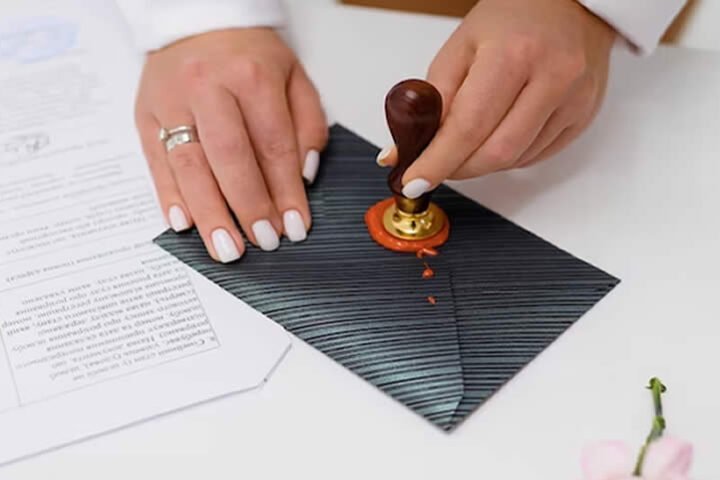In an increasingly globalized world, the seamless movement of individuals and businesses across international borders has become commonplace. Whether for lucrative employment opportunities, esteemed higher education, critical family reunification, or strategic business ventures, the legal recognition of your official documents in a foreign country is an absolutely non-negotiable prerequisite. Among the various layers of document authentication, MOFA attestation stands as a pivotal and often final step in legitimizing documents for international use. The Ministry of Foreign Affairs (MOFA), or its equivalent (e.g., MOFAIC in the UAE, MEA in India, FCDO in the UK, Global Affairs Canada), serves as a nation’s ultimate verifying authority, ensuring that a document originating from its territory is formally recognized for use abroad, or that a foreign document is accepted within its own borders. Understanding MOFA attestation—its purpose, process, and distinctions from other forms of legalization—is fundamental for anyone navigating the complexities of international documentation. For an unequivocally seamless, remarkably efficient, and supremely reliable journey through the inherent complexities of obtaining MOFA attestation services, Benchmark Attestation Services stands as your preeminent, trusted partner, dedicated to expertly simplifying every intricate step of this vital international legalization odyssey.
What is MOFA Attestation and Why is it Indispensable?
MOFA attestation refers to the official authentication provided by a country’s Ministry of Foreign Affairs (or equivalent governmental body responsible for external relations). This stamp or seal serves as a crucial confirmation that the preceding seals and signatures on a document are legitimate, thereby validating the document for international circulation and legal acceptance.
Why is MOFA attestation indispensable for global document acceptance?
- Legal Validity Across Borders: MOFA attestation is often the penultimate or ultimate step required to grant a document legal validity in a foreign country. Without it, your document may be summarily rejected by foreign governments, employers, or educational institutions, regardless of prior authentications.
- Governmental Assurance: The MOFA’s stamp signifies that the document has passed all necessary domestic verification checks and is now formally recognized by its home government for international purposes. It provides an official governmental assurance of the document’s authenticity.
- Facilitates International Transactions: For individuals, it’s essential for employment visas, residency permits, academic admissions, and family sponsorships. For businesses, it’s crucial for contracts, trade agreements, company registrations, and financial transactions in foreign markets.
- Anti-Fraud Measure: MOFA attestation adds a critical layer of security against fraudulent documents. By verifying prior authentications, it helps prevent the use of counterfeit or altered certificates in international dealings.
- Distinction from Notary/Departmental Attestation: While preliminary notarization or departmental attestation (e.g., by an educational board or local home department) confirms the document’s initial legitimacy, MOFA attestation elevates it to a nationally recognized and internationally acceptable standard.
MOFA Attestation vs. Apostille vs. Embassy Attestation: Clearing the Confusion
A common source of confusion in international document legalization arises from the interplay of MOFA attestation, Apostille, and Embassy attestation. Understanding their distinct roles is vital:
- Apostille:
- What it is: A simplified, single-step certification established by the Hague Apostille Convention of 1961.
- Purpose: To streamline the legalization process for documents used between countries that are both signatories to the Hague Convention.
- Process: The document is directly authenticated by a designated authority (often the country’s Ministry of Foreign Affairs or a Secretary of State office) in the issuing country. Once the Apostille is affixed, no further embassy or consular legalization is required in the destination Hague member country.
- Example: A birth certificate issued in the USA (Hague member) for use in Germany (Hague member) would require an Apostille from the US Secretary of State.
- MOFA Attestation (as part of a multi-step chain):
- What it is: The official authentication by a country’s Ministry of Foreign Affairs for documents that do not fall under the Apostille Convention (i.e., when either the issuing or destination country, or both, are not Hague signatories).
- Purpose: To prepare a document for subsequent legalization by the destination country’s embassy. It serves as the national-level verification before international diplomatic recognition.
- Process: Typically, it’s the step after initial local/state-level authentication and before embassy legalization.
- Example: A degree issued in Pakistan (Hague member, but for non-Hague destinations) for use in the UAE (non-Hague member) would require MOFA attestation in Pakistan before being sent to the UAE Embassy in Pakistan.
- Embassy/Consular Attestation (Legalization):
- What it is: The final authentication provided by the embassy or consulate of the destination country, located in the issuing country.
- Purpose: Required when the destination country is not a Hague Convention signatory. It signifies that the destination country’s diplomatic mission has recognized and accepted the document after it has passed through all prior domestic (including MOFA) authentications.
- Process: This step occurs after the document has received MOFA attestation in its country of origin. The document is then presented to the embassy/consulate of the country where it will be used.
- Example: A document from the UK (Hague member) for use in the UAE (non-Hague member) would require UK FCDO (Apostille) followed by UAE Embassy attestation in London, and finally, MOFAIC attestation in the UAE.
Crucial Takeaway: For documents destined for the UAE (United Arab Emirates), the full, traditional legalization process is always required, involving the MOFA/MEA of the origin country, followed by the UAE Embassy in that country, and culminating in MOFAIC attestation within the UAE. The term “MOFA attestation” often broadly refers to this final authentication performed by the UAE Ministry of Foreign Affairs and International Cooperation (MOFAIC) when the document arrives in the UAE, having already completed the prior steps.
The Multi-Stage Process: MOFAIC Attestation in the UAE
The Ministry of Foreign Affairs and International Cooperation (MOFAIC) in the UAE is the ultimate authority for legalizing documents for use within the Emirates. The process differs slightly depending on whether the document was issued within the UAE or abroad.
A. For Documents Issued Abroad (e.g., UK Degree, Indian Marriage Certificate) for Use in the UAE:
This is the most common scenario for expatriates and requires a meticulous, multi-layered approach:
- Initial Verification/Notarization (in the Issuing Country): The document first undergoes preliminary authentication by the relevant local or state authority in the country where it was issued.
- Examples: Notary Public (for personal affidavits), Human Resource Department (HRD) or Sub-Divisional Magistrate (SDM) for educational documents in India, General Register Office (GRO) or a Notary Public for UK documents, Secretary of State for US state-issued documents.
- Ministry of Foreign Affairs (MOFA/MEA) Attestation (in the Issuing Country): The document then receives authentication from the Ministry of Foreign Affairs (or equivalent, like MEA in India, FCDO in the UK, Global Affairs Canada) in its country of origin. This confirms national-level recognition.
- Note: For Hague Convention member countries (like the UK, India, USA, Canada, Pakistan), this step might technically be an “Apostille” (FCDO for UK, MEA for India/Pakistan, GAC for Canada, Secretary of State/USDOS for USA). However, since the UAE is a non-Hague country, this Apostille alone is insufficient; it must be followed by Embassy attestation.
- UAE Embassy/Consulate Legalization (in the Issuing Country): This is a critical step. The document, having been authenticated by its home country’s MOFA/MEA, is then presented to the UAE Embassy or Consulate located in that country. The Embassy affixes its own stamp, certifying that the document is now recognized by the UAE’s diplomatic mission.
- Ministry of Foreign Affairs and International Cooperation (MOFAIC) Attestation (in the UAE): This is the final and mandatory step for any foreign-issued document to be legally recognized within the UAE. Upon arrival in the UAE, the document (now bearing the stamps from its home country’s MOFA/MEA and the UAE Embassy abroad) is submitted to the UAE MOFAIC. MOFAIC verifies the preceding UAE Embassy stamp and then applies its final seal and signature, completing the legalization chain.
B. For Documents Issued Within the UAE (e.g., UAE Birth Certificate, UAE Marriage Certificate) for Use Abroad:
While the user primarily asked about general MOFA attestation, it’s important to include this inverse process, as MOFAIC also handles documents for outbound use.
- Initial Issuance/Authentication (within the UAE): The document is issued by the relevant UAE authority (e.g., Ministry of Health for birth certificates, Courts for marriage certificates, specific Free Zone authorities for commercial documents).
- Ministry of Foreign Affairs and International Cooperation (MOFAIC) Attestation (within the UAE): The document is submitted directly to the UAE MOFAIC. MOFAIC authenticates the signature and seal of the issuing UAE authority.
- Destination Country Embassy/Consulate Legalization (in the UAE): If the destination country is a non-Hague member, its embassy or consulate (located in the UAE) will then attest the MOFAIC-stamped document. If the destination country is a Hague member, typically only the MOFAIC attestation (acting as their Apostille, though sometimes a separate process) is sufficient for direct acceptance by that country.
Types of Documents Requiring MOFA Attestation
A wide array of official documents require MOFA attestation for various purposes:
- Educational Certificates: Degrees, diplomas, transcripts, mark sheets, school leaving certificates. (Required for employment, higher education, professional licensing.)
- Personal Documents: Birth certificates, marriage certificates, police clearance certificates (PCC), death certificates, experience certificates, medical reports, affidavits, powers of attorney (personal). (Required for family visas, residency, legal matters.)
- Commercial/Corporate Documents: Certificates of Incorporation, Memorandum of Association, Articles of Association, Trade Licenses, Board Resolutions, commercial powers of attorney, invoices, certificates of origin. (Required for business setup, trade, legal compliance.)
- Other Legal Documents: Court orders, judgments, wills.
Associated Costs and Processing Times for MOFA Attestation (UAE)
The costs and processing times for MOFAIC attestation in the UAE vary based on the document type and service channel:
- Official MOFAIC Fees (within UAE):
- Personal and Educational Documents: Approximately AED 150 – AED 250 per document.
- Commercial Documents: Approximately AED 500 – AED 2,000 per document.
- Note: These are MOFAIC’s direct fees. If using a service provider, their fees will be additional.
- Processing Time (MOFAIC in UAE):
- Standard: Typically 0-3 business days.
- Express/Urgent: Some channels offer expedited processing, potentially reducing time to 1 business day for an additional fee.
- Note: This refers only to the MOFAIC stage. The entire chain (especially for foreign documents) takes significantly longer due to international shipping and processing in the country of origin.
Common Reasons for MOFA Attestation Rejection
Rejection can lead to significant delays and frustration. Common reasons include:
- Incomplete Prior Attestation: The document did not undergo all the necessary preliminary authentications in its country of origin (e.g., missing home country MOFA/MEA stamp, or UAE Embassy stamp).
- Laminated or Damaged Documents: MOFAIC will not attest documents that are laminated, torn, or otherwise damaged. Original, pristine documents are required.
- Photocopies Instead of Originals: Only original certified public documents are accepted, not plain photocopies.
- Discrepancies in Information: Any mismatch in names, dates, or other critical details between the document and supporting identification (e.g., passport).
- Expired Documents: While not common for birth/marriage certificates, some legal or experience letters might have a validity period.
- Unrecognized Issuing Authority: The document was issued by an unrecognized or unaccredited institution or entity.
- Incorrect Language/Translation: If the document is not in Arabic or English, it typically requires a certified translation by a Ministry of Justice-approved translator in the UAE.
- Incorrect Fees: Submitting the wrong amount or an unaccepted payment method.
How Professional Attestation Services Simplify Your MOFA Attestation
Navigating the multi-layered process of MOFA attestation, especially for foreign-issued documents, can be complex, time-consuming, and prone to errors. This is where professional attestation services like Benchmark Attestation Services become invaluable.
Here’s how a reputable service can streamline your MOFA attestation journey:
- Expert Knowledge: Professionals possess up-to-date knowledge of the ever-evolving requirements for all document types and countries of origin, ensuring compliance at every stage.
- End-to-End Management: They handle the entire chain, from initial authentication in the country of origin (including liaising with foreign MOFAs and UAE Embassies abroad) to the final MOFAIC attestation in the UAE.
- Efficiency & Timeliness: With established processes and relationships, they significantly expedite the process, minimizing delays and ensuring timely completion, even for urgent needs.
- Document Security: They ensure the secure handling, transportation, and tracking of your valuable original documents throughout the entire process.
- Transparent Pricing: Reputable services provide clear, upfront cost breakdowns, avoiding hidden fees.
- Error Prevention: Their expertise helps prevent common mistakes that lead to rejection, saving you time, money, and frustration.
- Convenience: Many offer door-to-door collection and delivery services within the UAE, removing the logistical burden from you.
- Global Network: They often have a global network of partners to facilitate authentication in various countries.
By entrusting your MOFA attestation to a specialized service, you gain peace of mind, knowing your documents are handled expertly and efficiently, allowing you to focus on your core objectives in the UAE.
Conclusion
MOFA attestation (or MOFAIC attestation in the context of the UAE) is the critical final validation that grants your official documents legal recognition and acceptance for use in a foreign country. It represents the culmination of a systematic authentication chain, ensuring that your educational, personal, or commercial certificates meet the stringent legal requirements of the destination nation. While the specific process varies depending on the document’s origin and destination’s adherence to the Hague Convention, understanding its indispensable role in cross-border mobility and business is paramount.
For anyone seeking to live, work, study, or conduct business in the UAE, MOFAIC attestation is an absolute necessity. Navigating this intricate process independently can be challenging, but with the expert guidance and comprehensive support of professional services like Benchmark Attestation Services, you can ensure your documents are perfectly legalized, paving the way for a smooth and successful journey in the dynamic landscape of the United Arab Emirates.










